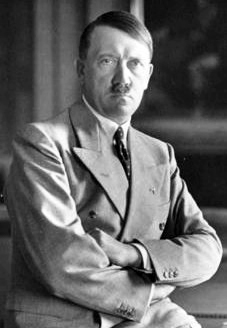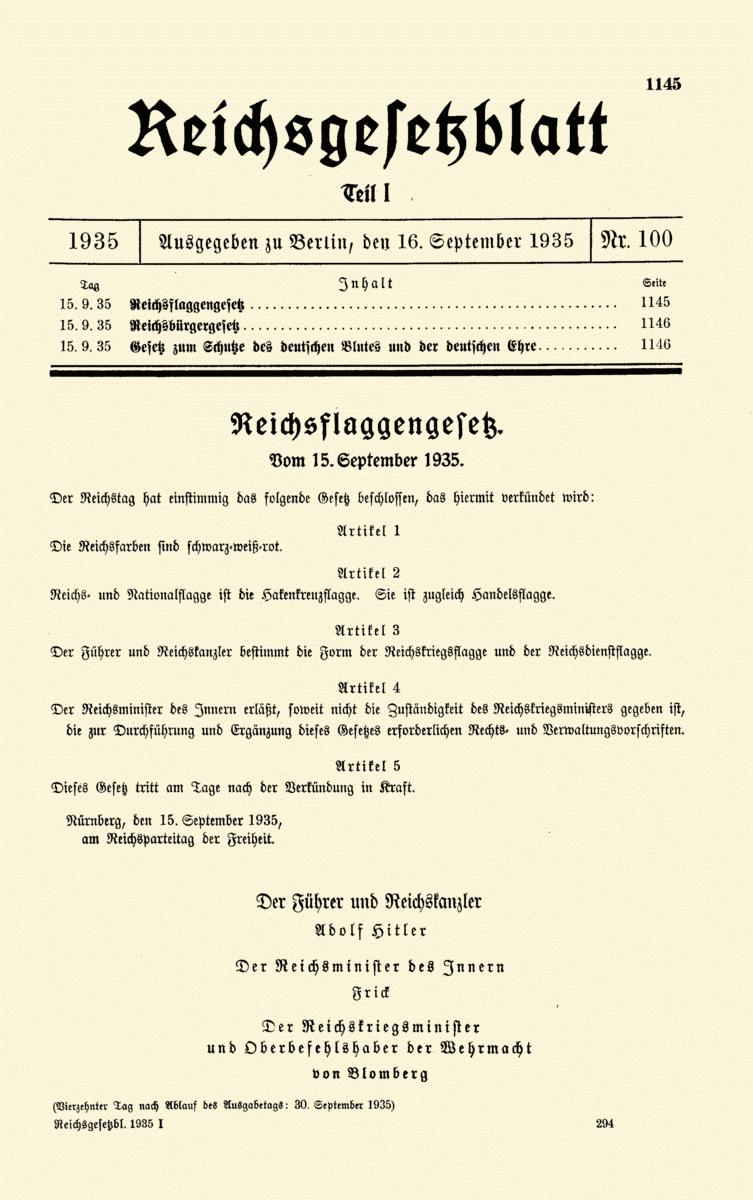|
German Election And Referendum, 1936
Parliamentary elections were held in Germany on 29 March 1936. They took the form of a single-question referendum, asking voters whether they approved of the military occupation of the Rhineland and a single party list for the new Reichstag composed exclusively of Nazis and nominally independent 'guests' of the party. Like previous votes in the Nazi era, it was rigged, with a claimed turnout of 99% and 98.8% voting in favour. In a publicity stunt, a number of voters were packed aboard the airships ''Graf Zeppelin'' and ''Hindenburg'', which flew above the Rhineland as those aboard cast their ballots. This was the first German election held after enactment of the 1935 Nuremberg Laws, which had removed citizenship rights (including the right to vote) from Jews and other ethnic minorities. In the previous elections and referendums under Nazi rule, Jews, Poles and other ethnic minorities had been allowed to vote without much interference, and even tacitly encouraged to vote agains ... [...More Info...] [...Related Items...] OR: [Wikipedia] [Google] [Baidu] |
Reichstag (Nazi Germany)
The Reichstag ("Diet of the Realm"), officially the Greater German Reichstag (''Großdeutscher Reichstag'') after 1938, was the parliament of Nazi Germany from 1933 to 1945. In effect it essentially served as a rubber stamp parliament. Following the Nazi seizure of power and the enactment of the Enabling Act of 1933, it was meant only as a rubber stamp for the actions of Adolf Hitler's dictatorship — always by unanimous consent — and to listen to Hitler's speeches. In this purely ceremonial role, the Reichstag convened only 20 times, the last on 26 April 1942. The President of the Reichstag (german: Reichstagspräsident) throughout this period was Hermann Göring. During this period, the Reichstag was sometimes derisively referred to by the German public as the "''teuerste Gesangsverein Deutschlands''" (the most expensive singing club in Germany) due to frequent singing of the national anthem during sessions. To avoid holding scheduled elections during World War II, in 1943 ... [...More Info...] [...Related Items...] OR: [Wikipedia] [Google] [Baidu] |
Nuremberg Laws
The Nuremberg Laws (german: link=no, Nürnberger Gesetze, ) were antisemitic and racist laws that were enacted in Nazi Germany on 15 September 1935, at a special meeting of the Reichstag convened during the annual Nuremberg Rally of the Nazi Party. The two laws were the Law for the Protection of German Blood and German Honour, which forbade marriages and extramarital intercourse between Jews and Germans and the employment of German females under 45 in Jewish households; and the Reich Citizenship Law, which declared that only those of German or related blood were eligible to be Reich citizens. The remainder were classed as state subjects without any citizenship rights. A supplementary decree outlining the definition of who was Jewish was passed on 14 November, and the Reich Citizenship Law officially came into force on that date. The laws were expanded on 26 November 1935 to include Romani and Black people. This supplementary decree defined Romanis as "enemies of the rac ... [...More Info...] [...Related Items...] OR: [Wikipedia] [Google] [Baidu] |
One-party Elections
A government is the system or group of people governing an organized community, generally a state. In the case of its broad associative definition, government normally consists of legislature, executive, and judiciary. Government is a means by which organizational policies are enforced, as well as a mechanism for determining policy. In many countries, the government has a kind of constitution, a statement of its governing principles and philosophy. While all types of organizations have governance, the term ''government'' is often used more specifically to refer to the approximately 200 independent national governments and subsidiary organizations. The major types of political systems in the modern era are democracies, monarchies, and authoritarian and totalitarian regimes. Historically prevalent forms of government include monarchy, aristocracy, timocracy, oligarchy, democracy, theocracy, and tyranny. These forms are not always mutually exclusive, and mixed governme ... [...More Info...] [...Related Items...] OR: [Wikipedia] [Google] [Baidu] |
March 1936 Events
March is the third month of the year in both the Julian and Gregorian calendars. It is the second of seven months to have a length of 31 days. In the Northern Hemisphere, the meteorological beginning of spring occurs on the first day of March. The March equinox on the 20 or 21 marks the astronomical beginning of spring in the Northern Hemisphere and the beginning of autumn in the Southern Hemisphere, where September is the seasonal equivalent of the Northern Hemisphere's March. Origin The name of March comes from '' Martius'', the first month of the earliest Roman calendar. It was named after Mars, the Roman god of war, and an ancestor of the Roman people through his sons Romulus and Remus. His month ''Martius'' was the beginning of the season for warfare, and the festivals held in his honor during the month were mirrored by others in October, when the season for these activities came to a close. ''Martius'' remained the first month of the Roman calendar year perhaps as la ... [...More Info...] [...Related Items...] OR: [Wikipedia] [Google] [Baidu] |
Federal Elections In Germany
Elections in Germany include elections to the Bundestag (Germany's federal parliament), the Landtags of the various states, and local elections. Several articles in several parts of the Basic Law for the Federal Republic of Germany govern elections and establish constitutional requirements such as the secret ballot, and requirement that all elections be conducted in a free and fair manner. The Basic Law also requires that the federal legislature enact detailed federal laws to govern elections; electoral law(s). One such article is Article 38, regarding the election of deputies in the federal Bundestag. Article 38.2 of the Basic Law establishes universal suffrage: "Any person who has attained the age of eighteen shall be entitled to vote; any person who has attained the age of majority may be elected." German federal elections are for all members of the Bundestag, which in turn determines who is the chancellor of Germany. The most recent federal election was held in 2021. German ... [...More Info...] [...Related Items...] OR: [Wikipedia] [Google] [Baidu] |
Elections In Nazi Germany
Elections in Germany include elections to the Bundestag (Germany's federal parliament), the Landtags of the various states, and local elections. Several articles in several parts of the Basic Law for the Federal Republic of Germany govern elections and establish constitutional requirements such as the secret ballot, and requirement that all elections be conducted in a free and fair manner. The Basic Law also requires that the federal legislature enact detailed federal laws to govern elections; electoral law(s). One such article is Article 38, regarding the election of deputies in the federal Bundestag. Article 38.2 of the Basic Law establishes universal suffrage: "Any person who has attained the age of eighteen shall be entitled to vote; any person who has attained the age of majority may be elected." German federal elections are for all members of the Bundestag, which in turn determines who is the chancellor of Germany. The most recent federal election was held 2021 German feder ... [...More Info...] [...Related Items...] OR: [Wikipedia] [Google] [Baidu] |
1936 Referendums
Events January–February * January 20 – George V of the United Kingdom and the British Dominions and Emperor of India, dies at his Sandringham Estate. The Prince of Wales succeeds to the throne of the United Kingdom as King Edward VIII. * January 28 – Britain's King George V state funeral takes place in London and Windsor. He is buried at St George's Chapel, Windsor Castle * February 4 – Radium E (bismuth-210) becomes the first radioactive element to be made synthetically. * February 6 – The 1936 Winter Olympics, IV Olympic Winter Games open in Garmisch-Partenkirchen, Germany. * February 10–February 19, 19 – Second Italo-Ethiopian War: Battle of Amba Aradam – Italian forces gain a decisive tactical victory, effectively neutralizing the army of the Ethiopian Empire. * February 16 – 1936 Spanish general election: The left-wing Popular Front (Spain), Popular Front coalition takes a majority. * February 26 – February 26 Inci ... [...More Info...] [...Related Items...] OR: [Wikipedia] [Google] [Baidu] |
1936 Elections In Germany
Events January–February * January 20 – George V of the United Kingdom and the British Dominions and Emperor of India, dies at his Sandringham Estate. The Prince of Wales succeeds to the throne of the United Kingdom as King Edward VIII. * January 28 – Britain's King George V state funeral takes place in London and Windsor. He is buried at St George's Chapel, Windsor Castle * February 4 – Radium E (bismuth-210) becomes the first radioactive element to be made synthetically. * February 6 – The IV Olympic Winter Games open in Garmisch-Partenkirchen, Germany. * February 10– 19 – Second Italo-Ethiopian War: Battle of Amba Aradam – Italian forces gain a decisive tactical victory, effectively neutralizing the army of the Ethiopian Empire. * February 16 – 1936 Spanish general election: The left-wing Popular Front coalition takes a majority. * February 26 – February 26 Incident (二・二六事件, ''Niniroku Jiken''): The Impe ... [...More Info...] [...Related Items...] OR: [Wikipedia] [Google] [Baidu] |
Nazi Party
The Nazi Party, officially the National Socialist German Workers' Party (german: Nationalsozialistische Deutsche Arbeiterpartei or NSDAP), was a far-right politics, far-right political party in Germany active between 1920 and 1945 that created and supported the ideology of Nazism. Its precursor, the German Workers' Party (; DAP), existed from 1919 to 1920. The Nazi Party emerged from the Extremism, extremist German nationalism, German nationalist, racism, racist and populism, populist paramilitary culture, which fought against the communism, communist uprisings in post–World War I Germany. The party was created to draw workers away from communism and into nationalism. Initially, Nazi political strategy focused on anti–big business, anti-bourgeoisie, bourgeois, and anti-capitalism, anti-capitalist rhetoric. This was later downplayed to gain the support of business leaders, and in the 1930s, the party's main focus shifted to Antisemitism, antisemitic and Criticism of ... [...More Info...] [...Related Items...] OR: [Wikipedia] [Google] [Baidu] |
Hermann Göring
Hermann Wilhelm Göring (or Goering; ; 12 January 1893 – 15 October 1946) was a German politician, military leader and convicted war criminal. He was one of the most powerful figures in the Nazi Party, which ruled Germany from 1933 to 1945. A veteran World War I fighter pilot ace, Göring was a recipient of the ("The Blue Max"). He was the last commander of ''Jagdgeschwader'' 1 (Jasta 1), the fighter wing once led by Manfred von Richthofen. An early member of the Nazi Party, Göring was among those wounded in Adolf Hitler's failed Beer Hall Putsch in 1923. While receiving treatment for his injuries, he developed an addiction to morphine which persisted until the last year of his life. After Hitler became Chancellor of Germany in 1933, Göring was named as minister without portfolio in the new government. One of his first acts as a cabinet minister was to oversee the creation of the Gestapo, which he ceded to Heinrich Himmler in 1934. Following the establishment of th ... [...More Info...] [...Related Items...] OR: [Wikipedia] [Google] [Baidu] |
Electorate
Electorate may refer to: * The people who are eligible to vote in an election, especially their number e.g. the term ''size of (the) electorate'' * The dominion of a Prince-elector in the Holy Roman Empire until 1806 * An electoral district An electoral district, also known as an election district, legislative district, voting district, constituency, riding, ward, division, or (election) precinct is a subdivision of a larger state (a country, administrative region, or other polity ... or constituency, the geographic area of a particular election See also * * Elector (other) {{disambiguation ... [...More Info...] [...Related Items...] OR: [Wikipedia] [Google] [Baidu] |






